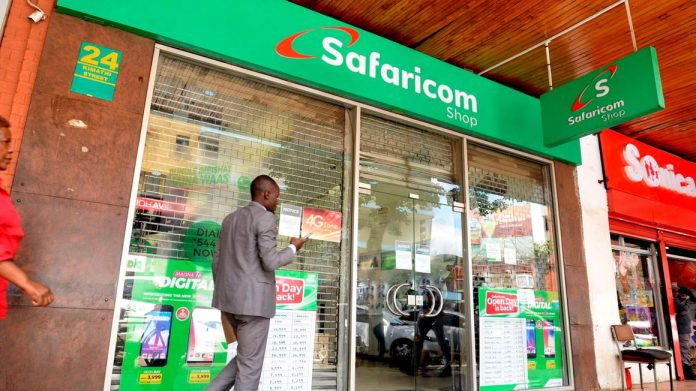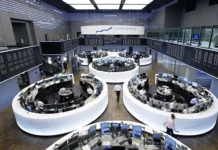Safaricom’s value on the Nairobi stock exchange has fallen below Sh1 trillion due to a flight of foreign investors following rate hikes in the United States.
The telco was valued at Sh979.60 billion yesterday, after its share price fell to Sh24.45 from a high of Sh38.15 at the start of the year, resulting in a paper loss of Sh548.9 billion.
The drop in the firm’s share price impacted the Nairobi Securities Exchange (NSE), with market capitalisation falling below the Sh2 trillion mark, which is comparable to market performance when Kenya was battling Covid-19 restrictions such as the nationwide curfew, which resulted in layoffs, job cuts, and business closures.
Safaricom, the country’s most profitable company, accounted for 82% of the NSE’s paper loss of Sh662 billion since the beginning of the year, highlighting its dominance that makes it difficult for investors to gauge the bourse’s performance.
The bourse is being weighed down by a reduced appetite for emerging markets following a rise in interest rates in developed markets such as the United States, which is currently battling high inflation, forcing central banks to raise interest rates.
On September 21, the Federal Reserve announced a third consecutive 0.75 percentage point increase in interest rates, signaling that borrowing costs would remain high for an extended period.
The Federal Reserve of the United States raised its key interest rate to a range of 3.0 percent to 3.25 percent.
Smaller markets, such as the NSE, have been hit harder because investors, particularly foreigners, are drawn to western bonds and equities, which are viewed as safe havens in times of global uncertainty.
This capital flight to the US market, where inflation is at multi-year highs, has caused price drops in blue-chip firms such as Safaricom, Equity Group, and East Africa Breweries Limited (EABL), which are popular with foreign investors.
Net foreign investor outflows totaled Sh589.5 million in the week ending September 30, down from Sh822.79 million the previous week.
“Company fundamentals are not the issue at the moment. The main reason behind the market slump is the western rate hikes, which are affecting emerging markets,” said an analyst at Genghis Capital.
The NSE market capitalisation yesterday dipped to a three-month low of Sh1.97 trillion having opened the year at Sh2.64 trillion.
“It is still a factor of local investors not being very active in the stock market as international investors continue to exit,” said Muathi Kilonzo, head of equities at EFG Hermes Kenya.
“There is just greater supply than there is demand and this is no different to how it has traded for a few months now.”
Nearly two years ago, the telco claimed at least half of the market wealth and has steadily increased its share of the NSE wealth since then.
Already, the Capital Markets Authority (CMA) has identified the dominance of five companies — including Safaricom — in the 65-stock market as a major risk, with the telecommunications firm’s performance dictating whether the market rises or falls on any given day.
This stock’s disproportionate market influence can also be seen in daily traded volumes, where it frequently accounts for more than half of all shares traded at the bourse.
This has meant that holding Safaricom shares has become a requirement when building a portfolio, with its high liquidity and value retention attracting investors, particularly foreign investors.
Despite other counters posting gains, a minor drop in the Safaricom share price creates the impression that the market is underperforming.



















